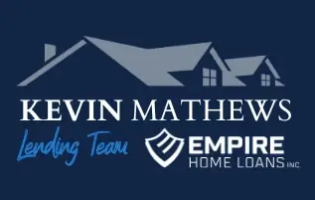

You have seen commercials with celebrities endorsing the merits of a reverse mortgage. If you are like me, you doubt that Tom Selleck or Henry Winkler have needed or utilized this type of loan. I would be very hesitant to put much faith in their recommendation as I am sure they are highly compensated and have no genuine experience with this loan product.
After personally originating thousands of home loans, (including reverse mortgages) for over 30 years, I wanted to share my views of this controversial, complicated, and usually misunderstood loan product.
A reverse mortgage is a loan that allows older homeowners (age 62 or older) to convert a portion of their home’s equity into cash without having to sell the home or make regular monthly payments, (although property taxes and home insurance are required to be maintained by the homeowner). Also known as a Home Equity Conversion Mortgage, (HECM), this loan program has been insured by the Federal Housing Administration since 1988. It is not free money, and it will need to be paid back but not until the final borrower no longer lives in the home. There must be substantial equity in the home, usually 35% to 50% depending on age and current interest rates.
They really are not for everyone and only fit in certain situations. First let us look at the individuals that a reverse mortgage would be a bad idea:
Reasons NOT to get a reverse mortgage:
You may move in the next few years: If you are unsure that you are living in your final home, be very hesitant to obtain a reverse mortgage. This loan product is designed for people that want to stay in their current home as long as physically possible.
You want to pass the home to your heirs with little hassle: Reverse mortgages can make it more complicated to leave your home to your kids. There will be a loan balance that will need to be paid off when you pass. If your estate does not have sufficient funds to make this happen, your heirs will have to find a way to pay off the loan by refinancing, (if sufficient equity) or they will need to tap into other sources.
You do not have enough money to pay the property taxes, insurance or maintain the property: This is a requirement by the reverse mortgage lender. If you do not have enough income or cash reserves to maintain these costs, it might be better to sell the home and get into something more affordable for your budget rather than take out a reverse mortgage.
Reasons to Consider a reverse mortgage:
You want to stay in your home for the rest of your life, (or as long as physically possible): A reverse mortgage allows you to do just that. You will be able to stay in your home as long as you want provided you keep up with the property taxes, home insurance and maintenance.
You are encountering significant costs late in life and do not have other assets to help: A reverse mortgage will pay off your existing home loan and eliminate monthly principal and interest payments. You can also receive monthly payments from the reverse mortgage and/or a line of credit for you to use on improvements or anything you like when you need it. All with no payments to the lender. This can help with rising household and/or healthcare costs.
HOW IT WORKS:
The reverse mortgage lender will pay off the existing home loan(s) if applicable, which eliminates the monthly principal and interest payments. There is no requirement to pay the money back until you move out of the home. You must continue paying property taxes and home insurance and maintain the property in livable condition. If the taxes and insurance are not paid or the home falls into disrepair, the lender has the right to foreclose on the home.
If there is enough equity in the home, you can elect to receive regular monthly payments and/or utilize a line of credit to access additional funds in addition to paying off the existing mortgage(s). Again, with no payments to the lender.
The home must be your primary residence. Duplexes, tri-plexes and four-unit properties may qualify if you live in one of the units. Condominiums and manufactured homes may be acceptable. Mobile homes in a park where the borrower does not own the land are not eligible.
Title to the property remains in your name during the life of the loan.
Payments or lump sum cash received from reverse mortgage are not taxable and they do not affect Social Security or Medicare benefits.
Heirs have options: Your heirs can choose to keep the home and pay off the reverse mortgage loan balance either with cash or refinancing if there is enough equity. Or if the reverse mortgage balance at that time exceeds the value of the home, the heirs can simply allow the home to revert to the lender with no penalties or repercussions to their credit.
Now for some negatives:
The reverse mortgage loan balance will grow each month depending on the interest rate and amount borrowed. This will affect the amount of money available for inheritance.
Closing costs/Fees for reverse mortgages are higher when compared to regular mortgages. Normally these fees are financed into the reverse mortgage, so the borrower does not have to pay these fees until the loan comes due, (when borrower moves or passes away),
Payments or lump sum cash received from reverse mortgage can affect eligibility for Medicaid or Supplemental Social Security, a federal program for low-income individuals.
Reverse mortgage lenders can foreclose if the property taxes and home insurance are not current or if the home is not maintained in good repair. (these are the same requirements for any type of mortgage).
If you are questioning if a reverse mortgage would be a good option for you, a relative or friend, contact me to help you navigate this complex financial tool. I will let you know the good and bad parts so that you will have valuable information to help make your decision.
Kevin Mathews

